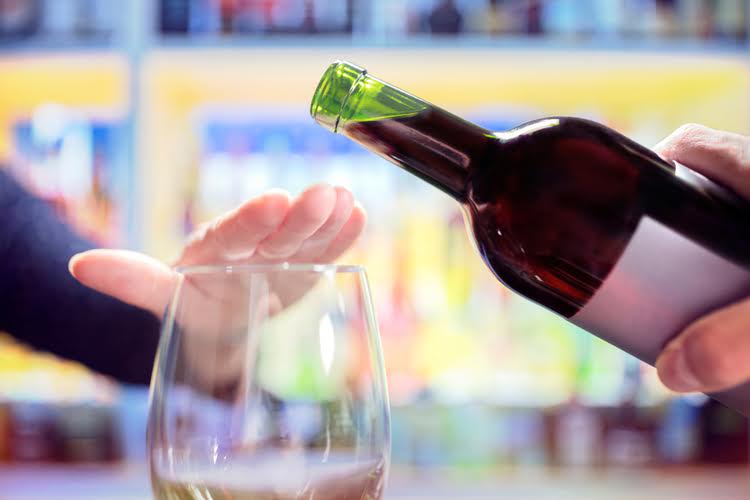That’s why gratitude is so important for people recovering from addiction, especially in early recovery. You see the kindness and generosity of others who support you, inspire you, and make a difference in your life. You also recognize the opportunities and possibilities that lie ahead https://scale-models.net/the-benefits-of-having-a-hobby-you-enjoy/ of you and embrace them with enthusiasm and a positive outlook. While you may have regrets about your addiction and past, use the power of words to help you move on to a place of acceptance. When you think or talk about your addiction, always follow up with where you are now.
Strengthen relationships and social support
“Practice gratitude” is one of those platitudes that seems like it belongs in script on a wall next to Live, Laugh, Love. And while it may sound a bit “hippie” and spiritual, this valuable practice is strongly encouraged by most therapists and counselors. In particular, individuals are urged to practice gratitude in recovery. A great way to take the focus off yourself and your own difficulties is to help others. Whether you volunteer to bring joy to those in need, practice kindness to someone you love or give generously without expecting to be repaid, these opportunities will fill you with joy. With gratitude on your side, you can be a positive force in the world.
Essentials for Practicing Gratitude in Recovery
She is co-chair of the State’s Behavioral Health Services Advisory Council, and a co-chair of the Responsible Play Partnership which addresses problem gambling in New York State. Governor Cuomo also appointed Commissioner Arlene Gonzalez-Sanchez to serve as Member of the Council for SUNY Empire State College for a term, which expires in June 2024. At a time when many mental health professionals are feeling crunched, we hope that this research can point them—and their clients—toward an effective and beneficial tool.
The Power of Gratitude: Expressing Appreciation and Cultivating Joy
- Throughout each day, be mindful of your interactions and observations of others.
- You can start your recovery journey with Design for Recovery, a sober living home for men that offers a supportive environment and a holistic approach to recovery.
- If you’re struggling with sobriety and want to break free from addiction’s hold so you can reclaim your life, there is help.
- Tran joined the Des Moines Police Department in 1982 and spent 18 years as a cadet before becoming a full-time officer in 2000.
She assists nurses in navigating the complexities of licensure, legal consequence, treatment and employment related issues while dually protecting public safety interests. As people start to practice being grateful in their recovery journey, the feeling blossoms, especially as they approach Step 12 and start to carry the message on to others who are struggling with http://www.freepatent.ru/patents/2523806 addiction. As a brand new year is upon us and the quietness has settled in following the holiday and New Year’s festivities, incorporating Gratitude in our recovery—our daily lives—helps shape our mindset. During the journey, every step along the way can and should be a source of greater hope and optimism for the future you are working to create for yourself.


Replacing selfishness with gratitude can be revealed through intentional service to others by volunteering, charitable giving and even supporting others in recovery. Gratitude strengthens your recovery, ushering in joy, peace and selflessness that will empower your journey and positively impact, even inspire, your loved ones. The good news is that gratitude is a mental outlook that can be developed and strengthened over time. The great news is that the benefits occur almost immediately with significant impact on your recovery success and overall well-being. When stress begins to overwhelm you, take a moment to pause and reflect on what you are grateful for. This simple act can provide perspective and remind you of the progress you have made in your recovery journey.
Say positive affirmations to yourself in the mirror, or write them down on sticky notes and place them around your home. The more you repeat these affirmations, the more you will internalize them and feel their effects. It fosters connection and generosity, enhancing relationships on the recovery path. Many people think that gratitude is naive or unrealistic, especially in the face of difficulties or hardships.

- Allison holds a Bachelor of Science in Industrial and Labor Relations from Cornell University and a Masters in Social Work; Community Organization, Planning and Development from the Silberman School of Social Work at Hunter College.
- While working for a former chairman of the Senate Education Committee, Stephanie pursued her MS in Adolescent Education at the University at Albany to become a high school social studies teacher.
- Stephen current lives in the Buffalo Area and he is a founding member of the Buffalo/Niagara Peer Collaborative.
- His professional background includes all aspects of organizational peer-professional integration and programming including training, coaching, and supervision as well as community and professional education and outreach.
- In studies, those individuals who were considered optimistic had better overall health and in some cases aged better too.
It can remind you of how far you’ve come and all you’ve done to get to this stage of recovery. Whatever method you choose, try to set yourself up for success by being realistic. If you’re not a morning person, writing in a gratitude journal first thing is unlikely. Set up your routine to fit comfortably in your life so you can keep up this new habit long-term. Every day, take just a moment or two to write down a few things that make you grateful. It could be spending an afternoon with a friend or watching the sunrise.
What Life Looks Like with Gratitude
- So, commit yourself to practice gratitude daily; soon, it will become a natural part of your recovery journey.
- A sense of gratitude is a simple but powerful skill throughout your recovery journey.
- It promotes confidence and improves self-esteem while keeping you motivated throughout recovery.
- When you first start practicing gratitude, it’ll take some time to make it a regular habit.
More than creating a gratitude list, actively practicing gratitude has always been essential to recovery success. Expressing gratitude can also encourage you to strive for improvement, as it reminds you of what you have already achieved http://www.hotel-suite.ru/news/77/ and demonstrates how much more you can accomplish. By practicing gratitude during recovery, you not only boost your resilience in times of hardship but also lay the foundation for long-term success in all areas of life.
